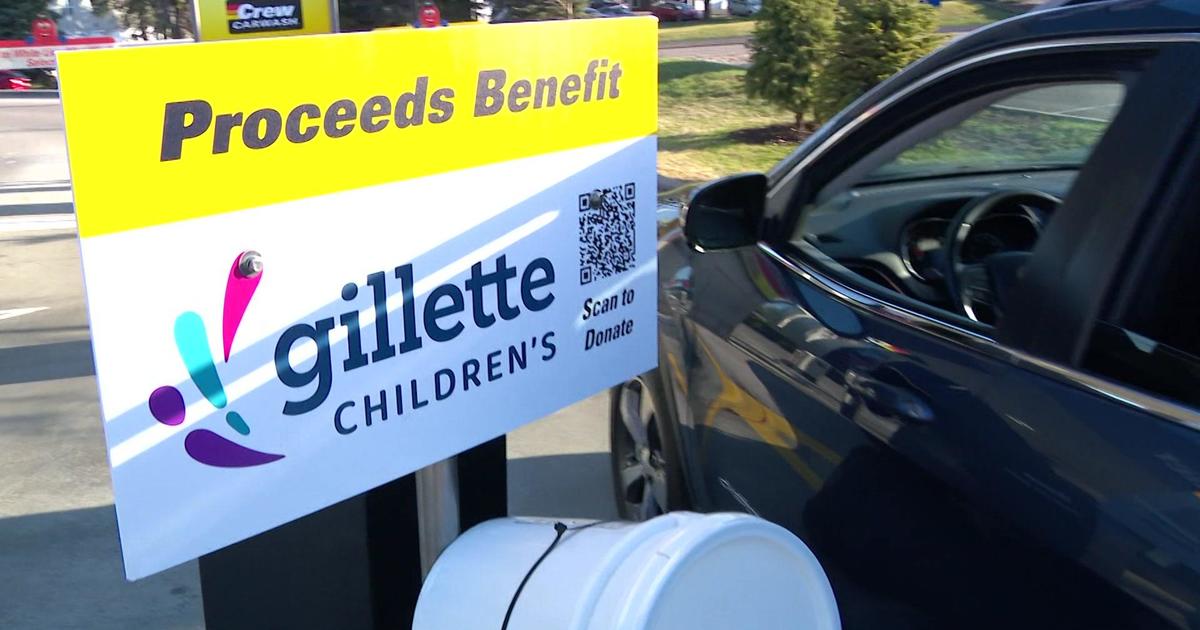Worries About Drowning Come With Heat
ST. PAUL, Minn. (AP) — As heat across a big chunk of the U.S. drives people into pools and lakes to cool off, public health officials are worried about a heightened risk of drowning.
Minnesota has had more drowning deaths so far this year than any time in the past decade, and officials in Illinois and Michigan are seeing an uptick in some areas, too. Drowning deaths historically go up in the summer months, but the intensely hot weather may also be putting even more people at risk as they flock to water for relief, some without swimming skills.
"When you've got more people out there, the chances of someone getting hurt or killed are increased just by the fact you've got numbers on the water," said Kim Elverum, spokesman for the Minnesota Department of Natural Resources. "You've got ability and so on from one end of the scale to another out there."
Much of the central and eastern U.S. has experienced particularly hot weather in recent days, with temperatures climbing into the 100s in several cities. In the Midwest, even low temperatures have been setting record highs, meaning people aren't able to get relief even overnight.
In Chicago, Reggie Banks wondered whether heat drove his 22-year-old nephew, a strong swimmer who played high school water polo, into Lake Michigan on the Fourth of July. Mahlik Harris' body was pulled out of the water after he went missing while swimming in the lake, where he might have gotten a cramp that made it impossible for him to swim back to shore. An autopsy is pending.
"The beach was closed so there's no swimming after 7, but everybody was packed out there watching the fireworks and it's 100 degrees and they're thinking, 'Let's get into the water,'" Banks said.
Excessive heat-warnings were in place Friday for all of Iowa, Indiana and Illinois as well as much of Wisconsin, Michigan, Missouri, Ohio and Kentucky, and parts of Pennsylvania, Maryland, New Jersey and Delaware. The National Weather Service said it expected heat warnings and advisories to be continued or expanded on Saturday, with the heat largely centered over Ohio Valley and Mid-Atlantic states.
"I hate it," Brenda Jones, 55, said Friday as she sat on a covered porch outside her Detroit apartment building in a tank top and shorts. "When the sun hits the porch at 5 p.m., I run in and take cover. Give me fall."
Few states release hard numbers on drownings at this point in the year, but Minnesota counted 25 non-boating drowning deaths through July 5, the highest in a decade. The deaths happened in lakes, rivers and ponds as well as manmade pools, hot tubs and bathtubs. The numbers include four who fell through ice in the winter. In a state with a multitude of lakes, a warm year has driven even those who don't normally swim to the water.
The deaths include a 5-year-old boy who drowned off a dock, with his unworn life jacket still sitting on the dock. A 17-year-old boy died after trying to swim from an inflatable raft to an island, and a 20-year-old man died after jumping off a motorboat to swim, then struggling in the water.
"You have some inexperience out there with handling some of these situations," Elverum said.
Julie Gilchrist, a medical epidemiologist and pediatrician at the U.S. Centers for Disease Control and Prevention, said the heat wave should serve as a wake-up call for everyone to learn survival swimming skills — how to right one's body, swim to the surface, control breathing, float or tread water, and traverse a distance in the water. She said research shows swimming lessons even for children as young as age 1 can help protect them from drowning.
"Everybody needs to know how to swim," she said.
She urged people to swim at beaches or pools with lifeguards but not to rely on the lifeguard to track their children. Weaker swimmers should wear life jackets.
Even without the drownings, the heat has resulted in deaths. An Ohio coroner blamed excessive temperatures for the deaths of three people found alone in their homes earlier this week, and St. Louis officials have reported three heat-related deaths in recent days. In Rock County, Wis., a coroner said the death of an 83-year-old woman was definitely due to the heat. And in Tennessee, authorities have opened a criminal investigation into last week's heat deaths of two young brothers.
Storms that have knocked out power in some states have made riding out the heat even more difficult.
Some 200,000 people were without power Friday in West Virginia, and heat advisories were in place through Saturday for part of that state.
Robin Workman lives with her husband, three sons, daughter-in-law and grandson in Cabin Creek, W.Va. After the power failed, they all moved into a single room in her mother-in-law's home next door. They connected fans to the generator, laid mattresses on the family room floor and tried to stay comfortable.
Power popped on early Friday morning at Workman's home, but she was keeping the generator and gas cans handy just in case.
"My sister-in-law got power the other night and then lost it again. They didn't even have it 24 hours," she said, "so no, I'm not that confident."
(© Copyright 2012 The Associated Press. All Rights Reserved. This material may not be published, broadcast, rewritten or redistributed.)



